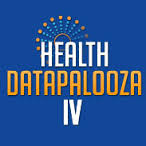 New Data on Medicare Spending and EHR Adoption
New Data on Medicare Spending and EHR Adoption
Health Datapalooza IV kicked off yesterday and with it came the release of new data from Health and Human Services (HHS). Seems like the event is a fitting place to release data to the public, given the annual event’s focus on the liberation of data.
First up, the Centers for Medicare & Medicaid Services (CMS) released new data on Medicare spending and utilization by county, as well as selected data on hospital outpatient charges. This was followed by HHS Office of the National Coordinator for Health Information Technology (ONC) releasing additional information on the adoption of specific EHRs, providing detail from the Regional Extension Centers (RECs).
Below is a recap of the HHS released data:
- CMS released selected hospital outpatient data that includes estimates for average charges for 30 types of hospital outpatient procedures from hospitals across the country, such as clinic visits, echocardiograms, and endoscopies.
- CMS released new data sets for the first time at the county level: one on Medicare spending and utilization, and another on Medicare beneficiaries with chronic conditions. Both data sets will enable researchers, data innovators and the public to better understand Medicare spending and service use, spurring innovation and increasing transparency, while protecting the privacy of beneficiaries. The data will also be available through aninteractive state level dashboard based on the spending information, allowing users of any skill level to quickly access and use the data.
- ONC released data today from the Regional Extension Centers about the different brands of EHR products used by 146,000 doctors by state, specialty, and each doctor’s stage in meaningful use attestation.
The ONC also announced the winners of the Apps4TotsHealth Challenge, which was launched to help parents and caregivers of young children better manage their nutrition and physical activity. The winning developers, researchers, and other innovators make use of Healthdata.gov data to strengthen these tools and make them more user-friendly. More on the winners here.
